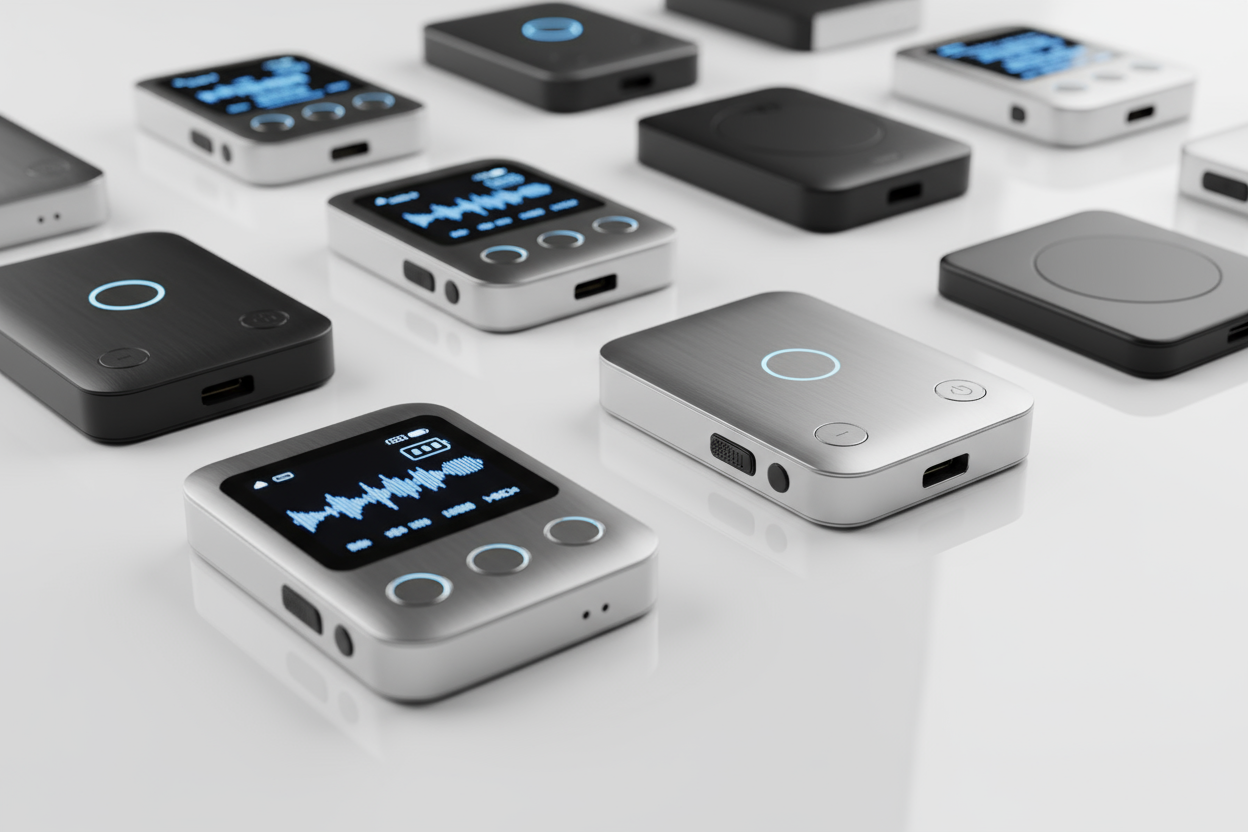Introduction
AI voice recorders are rapidly changing how we capture and interact with audio information. From transcribing meeting minutes to generating realistic voiceovers, these powerful tools offer a wide range of capabilities. However, their use also raises important questions about legality, privacy, and ethics. This article provides a comprehensive overview of AI voice recorders, answering the most common questions to help you navigate this evolving technology responsibly.
Questions and Answers
⚖️ Legality and Ethics
❓ Is it legal to use AI voice?
Yes, but with important caveats. The legality of using AI-generated voices depends heavily on consent and the specific use case. Using an AI voice for personal projects is generally acceptable, but commercial use or impersonation without permission can lead to legal issues. Always ensure you have the right to use a voice, especially if it resembles a real person. [1]
❓ Is AI recording legal?
AI recording is legal as long as you comply with relevant laws, which vary by location. In many places, you need consent from all parties before recording a conversation. For example, 11 U.S. states have two-party consent laws. Failure to obtain consent can result in legal penalties. [2]
❓ Is deepfake voice illegal?
The legality of deepfake voices is a complex and evolving area of law. While not all deepfakes are illegal, creating them for malicious purposes such as fraud, defamation, or election interference is against the law in many jurisdictions. Several states have enacted specific laws to combat the misuse of deepfake technology. [3]
❓ Can you sue AI for using your voice?
You can sue the creators or users of an AI system for using your voice without permission. Legal claims can be based on violation of your right of publicity, which protects the commercial use of your likeness, including your voice. [3]
❓ Is it cheating to use AI to take notes?
This depends on the context and the rules of your institution. Using AI to transcribe lectures for personal review is often acceptable, but submitting AI-generated notes as your own work without permission is considered plagiarism. Always check your school's or company's policy on AI use. [4]
❓ What are the risks of AI note takers?
The main risks include privacy violations (if conversations are recorded without consent), security breaches (if data is not stored securely), and legal issues related to wiretapping and data protection laws. There are also ethical concerns about the impact on open communication. [2]
🎙️ AI Voice Recorder Features and Capabilities
❓ Can AI make a voice recording?
Yes, AI can generate voice recordings from text (text-to-speech) and can also be used to create systems that record and transcribe audio. Many AI voice recorder apps use AI to enhance recording quality and provide transcription services.
❓ What is the best free voice AI?
Several excellent free voice AI tools are available, each with its own strengths. Some of the most popular options include Otter.ai for transcription, Google Live Transcribe for real-time transcription on Android, and ChatGPT's voice mode for conversational AI. [5]
❓ Is voice recorder AI free?
Many AI voice recorder apps offer free tiers with limited features, such as a certain number of transcription minutes per month. For more advanced features and higher usage limits, paid subscriptions are typically required. [5]
❓ What is the most realistic AI voice?
ElevenLabs is widely regarded as offering some of the most realistic and human-like AI voices available today. Their technology is capable of capturing a wide range of emotions and speech nuances, making it a popular choice for content creators. [6]
❓ What is the AI voice that everyone uses?
The viral AI voice often heard on social media platforms like TikTok is from ElevenLabs. The specific voice is named "Adam" and is known for its clear and engaging tone. [6]
❓ How to tell if someone is using an AI voice?
Signs of an AI voice include a robotic tone, unnatural pacing, lack of emotional variation, and perfect pronunciation without any of the typical human speech imperfections like breaths or pauses. There are also AI voice detection tools available that can analyze audio to determine if it's AI-generated. [7]
💬 ChatGPT and Voice Recording
❓ Can you record on ChatGPT?
Yes, ChatGPT has a voice mode that allows you to have spoken conversations with the AI. You can also upload audio files for transcription. However, ChatGPT does not have a feature to record audio directly from your device's microphone for an extended period like a traditional voice recorder. [8]
❓ Can ChatGPT do voice to text?
Yes, ChatGPT can transcribe audio files. You can upload an audio file, and ChatGPT will provide a text transcription of the content. [8]
❓ Can I use ChatGPT as a voice assistant?
Yes, ChatGPT's voice mode allows it to function as a voice assistant. You can ask it questions, brainstorm ideas, and get information through spoken conversation. [8]
❓ Is ChatGPT TTS free?
Yes, ChatGPT's text-to-speech (TTS) capabilities are available to free users, though there may be limitations on usage compared to paid plans. [8]
❓ Can ChatGPT mimic my voice?
While the underlying technology may be capable of voice mimicry, OpenAI has implemented safety measures to prevent ChatGPT from mimicking specific voices to avoid misuse. [8]
📱 iPhone and Voice Recording
❓ Do iPhones have a built-in voice recorder?
Yes, iPhones come with a built-in app called Voice Memos, which allows you to record, edit, and share audio recordings. [9]
❓ Can I record a live conversation on my iPhone?
Yes, you can use the Voice Memos app to record a live conversation. With iOS 18, you can also record phone calls directly, with a notification to all parties that the call is being recorded. [10]
❓ Can an iPhone record and transcribe?
Yes, with iOS 18, iPhones can record and transcribe phone calls in supported regions. The transcription is automatically generated and saved in the Notes app. [10]
Conclusion
AI voice recorders are powerful tools that offer a wide range of benefits, from increased productivity to new creative possibilities. However, it's crucial to be aware of the legal and ethical implications of their use. By understanding the laws in your jurisdiction, obtaining consent when necessary, and using these tools responsibly, you can harness the power of AI voice technology while respecting the rights and privacy of others.
References
- Respeecher - Are AI Voices Copyrighted?
- Boston Bar Association - AI Notetakers: What Must Lawyers Do To Use Them?
- National Security Law Firm - Understanding Voice Cloning: The Laws and Your Rights
- Grammarly - Is Using AI Cheating?
- Otter.ai - Start for Free
- ElevenLabs - AI Voice Generator
- Podcastle - How to Tell if Audio is AI-Generated?
- OpenAI - Voice Mode FAQ
- Apple Support - Make a recording in Voice Memos on iPhone
- Apple Support - Record and transcribe a call on iPhone






































































0 comments